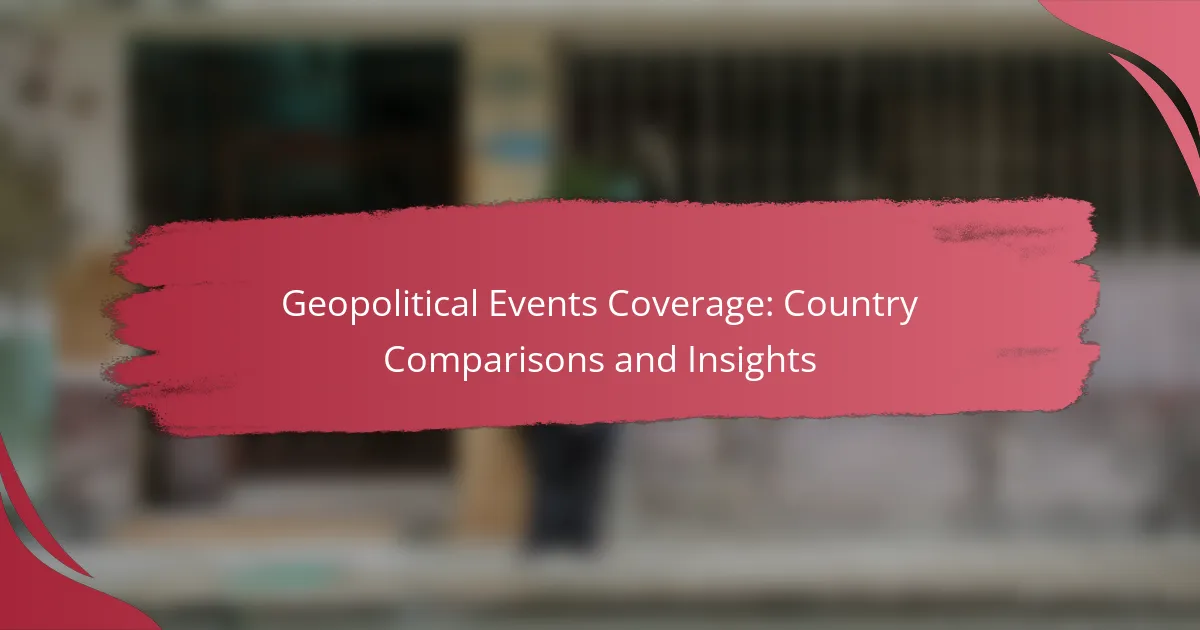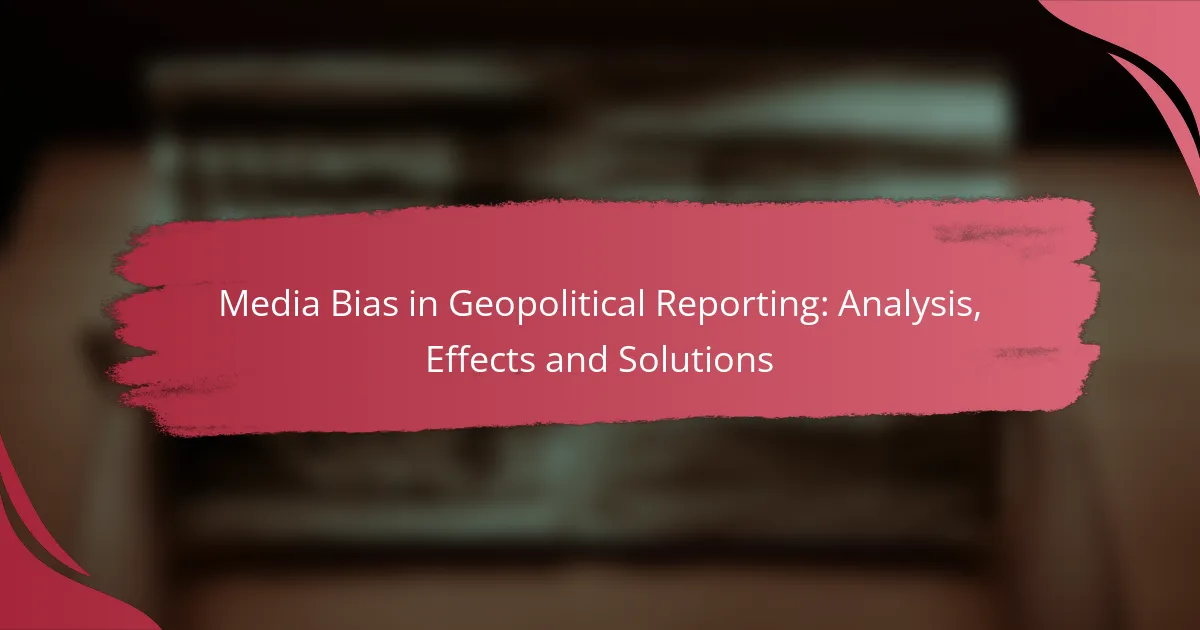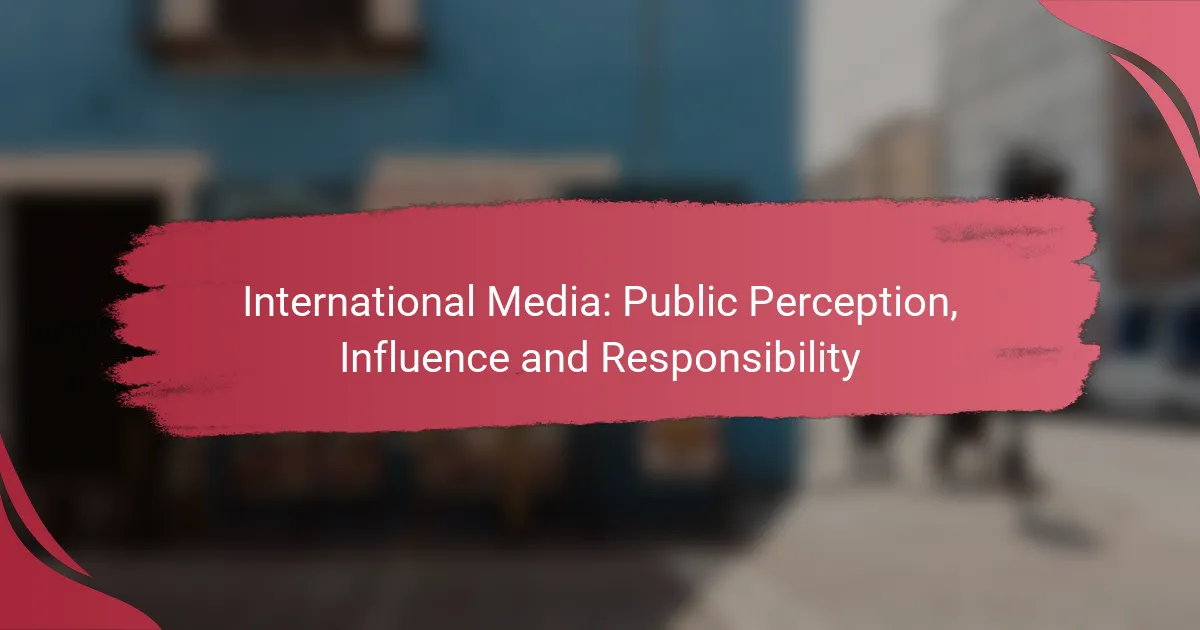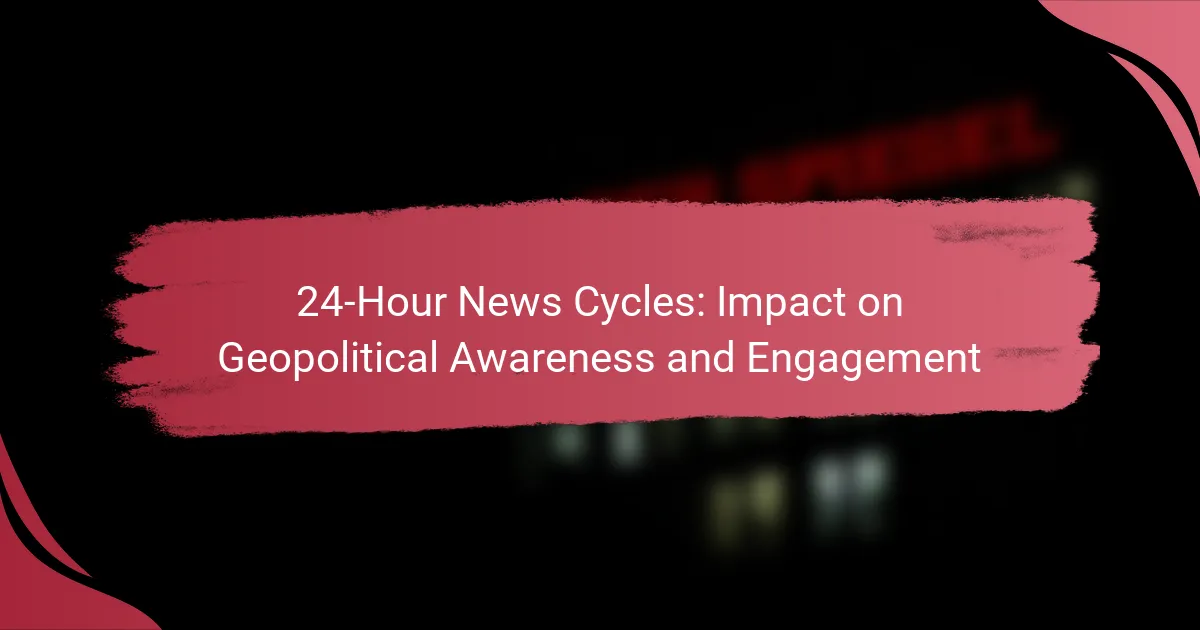Geopolitical events play a pivotal role in shaping the dynamics between nations, affecting their economic, military, and diplomatic relations. By examining these events, we can gain valuable insights into how historical, cultural, and economic factors influence global stability and international cooperation. Understanding the comparative geopolitical risks of different countries is essential for assessing their security and overall risk profiles.
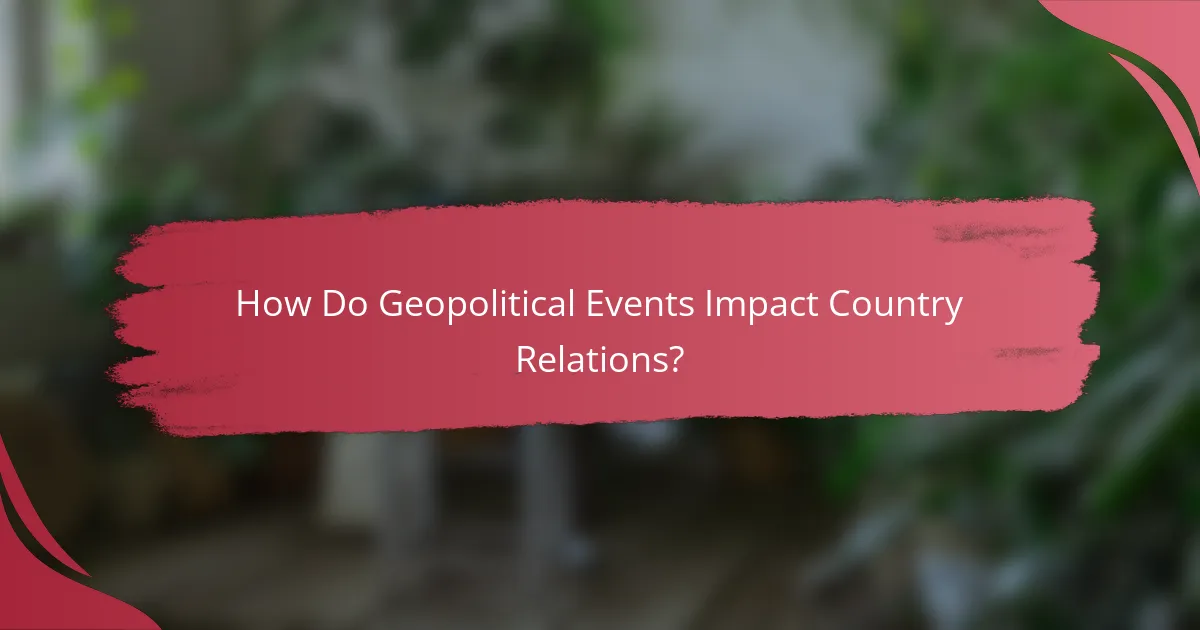
How Do Geopolitical Events Impact Country Relations?
Geopolitical events significantly influence the relationships between countries by shaping their economic, military, and diplomatic interactions. These events can lead to changes in alliances, trade dynamics, and overall international cooperation.
Economic sanctions
Economic sanctions are measures imposed by one country or a group of countries to restrict trade and financial transactions with another nation. These sanctions can severely impact the targeted country’s economy, leading to inflation, unemployment, and reduced access to essential goods.
For example, sanctions against Russia have included restrictions on oil exports and financial transactions, which have affected its economy and international relations. Countries considering sanctions should weigh the potential economic fallout against their political objectives.
Diplomatic negotiations
Diplomatic negotiations are discussions aimed at resolving conflicts and improving relations between countries. These negotiations can take place through formal treaties or informal dialogues and often involve compromises from both sides.
Successful negotiations can lead to peaceful resolutions of disputes, as seen in the Iran nuclear deal, which aimed to limit Iran’s nuclear capabilities in exchange for sanctions relief. Countries should prioritize open communication and mutual respect to foster effective negotiations.
Military alliances
Military alliances are agreements between countries to support each other in times of conflict, enhancing their security and strategic positioning. These alliances can deter aggression from external threats and provide a framework for collective defense.
Examples include NATO, which unites North American and European countries against potential threats. Countries should assess the benefits of joining military alliances against the implications for their sovereignty and regional stability.
Trade agreements
Trade agreements are treaties between countries that facilitate trade by reducing tariffs and other barriers. These agreements can enhance economic cooperation and create stronger ties between nations.
For instance, the European Union (EU) promotes trade among its member states through common regulations and reduced tariffs. Countries should consider the long-term economic benefits of trade agreements while being mindful of domestic industries that may be affected.
Humanitarian aid
Humanitarian aid involves providing assistance to countries in crisis, often due to conflict or natural disasters. This aid can take the form of food, medical supplies, and financial support, helping to stabilize affected regions.
For example, international organizations often provide aid to countries facing famine or war, which can improve relations and foster goodwill. Countries should ensure that their humanitarian efforts are coordinated and effectively address the needs of the affected populations.
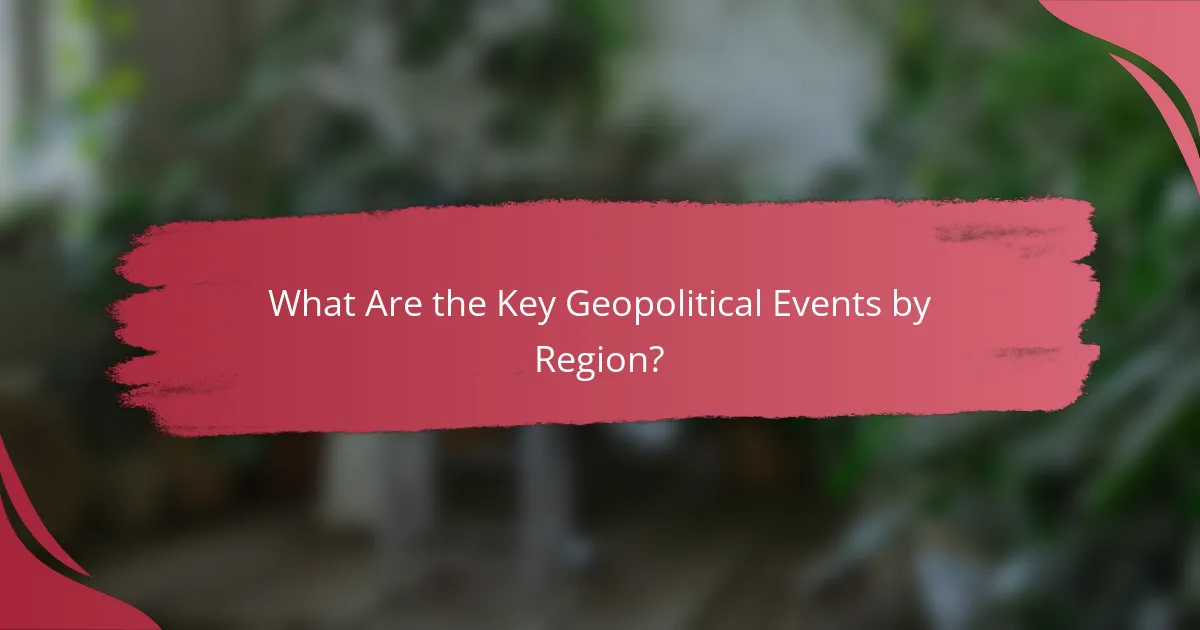
What Are the Key Geopolitical Events by Region?
Key geopolitical events vary significantly by region, influenced by historical, cultural, and economic factors. Understanding these events is crucial for assessing global stability and international relations.
Middle East conflicts
The Middle East is marked by ongoing conflicts, primarily driven by territorial disputes, religious tensions, and political instability. Key players include Israel, Palestine, and various state and non-state actors, each with distinct agendas.
Recent escalations, such as the Israel-Palestine conflict and tensions involving Iran, have significant implications for regional security and international diplomacy. Stakeholders must navigate complex alliances and rivalries to foster peace.
European Union policies
The European Union (EU) shapes geopolitical dynamics through its collective policies on trade, migration, and security. Member states often collaborate to address common challenges, such as climate change and economic stability.
Current EU policies focus on strengthening borders, enhancing defense cooperation, and managing relations with neighboring countries. Understanding these policies is essential for businesses and governments engaged in the European market.
Asian territorial disputes
Asia is home to several territorial disputes, particularly in the South China Sea and between India and Pakistan. These disputes often involve claims over valuable resources and strategic waterways, impacting regional trade and security.
Countries like China, Vietnam, and the Philippines are actively involved in these disputes, which can lead to heightened military tensions. Stakeholders should monitor these developments closely, as they can affect global supply chains and international relations.
African political unrest
Africa experiences significant political unrest, often fueled by economic disparities, ethnic tensions, and governance issues. Countries like Sudan, Ethiopia, and Nigeria face challenges that threaten stability and development.
Understanding the root causes of unrest is vital for international organizations and investors. Engaging with local communities and supporting governance initiatives can help mitigate conflicts and promote sustainable development in the region.
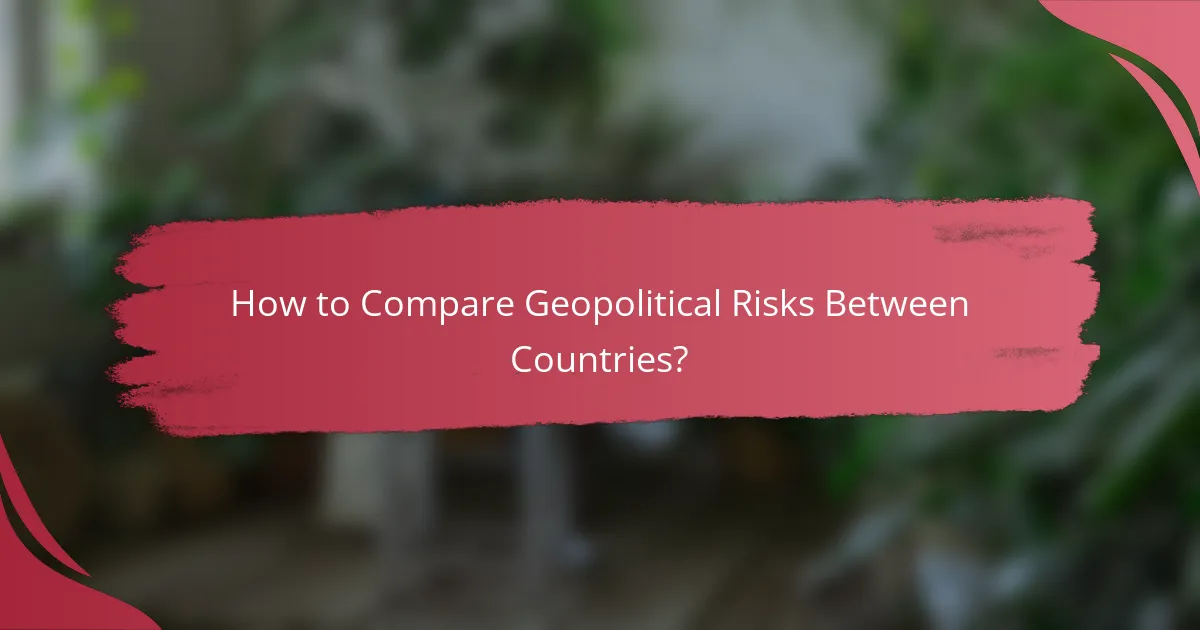
How to Compare Geopolitical Risks Between Countries?
Comparing geopolitical risks between countries involves analyzing various factors that influence stability and security. Key considerations include political, economic, and social dimensions that can impact a nation’s risk profile.
Risk assessment frameworks
Risk assessment frameworks provide structured methodologies for evaluating geopolitical risks. These frameworks often incorporate qualitative and quantitative data to assess potential threats, vulnerabilities, and impacts on national security.
Common frameworks include the World Economic Forum’s Global Risks Report and the International Crisis Group’s analyses. These tools help policymakers and analysts identify trends and prioritize risks based on severity and likelihood.
Political stability indices
Political stability indices measure the likelihood of political upheaval or instability within a country. These indices often consider factors such as government effectiveness, political violence, and civil unrest.
Examples include the World Bank’s Worldwide Governance Indicators and the Economist Intelligence Unit’s Democracy Index. Countries with high stability indices typically exhibit lower geopolitical risks, making them more attractive for investment and international relations.
Economic vulnerability reports
Economic vulnerability reports assess a country’s susceptibility to economic shocks that can lead to geopolitical instability. These reports analyze factors like trade dependencies, fiscal health, and external debt levels.
For instance, the International Monetary Fund (IMF) publishes assessments that highlight vulnerabilities in emerging markets. Understanding these vulnerabilities helps stakeholders gauge the potential for economic crises that could escalate into broader geopolitical issues.
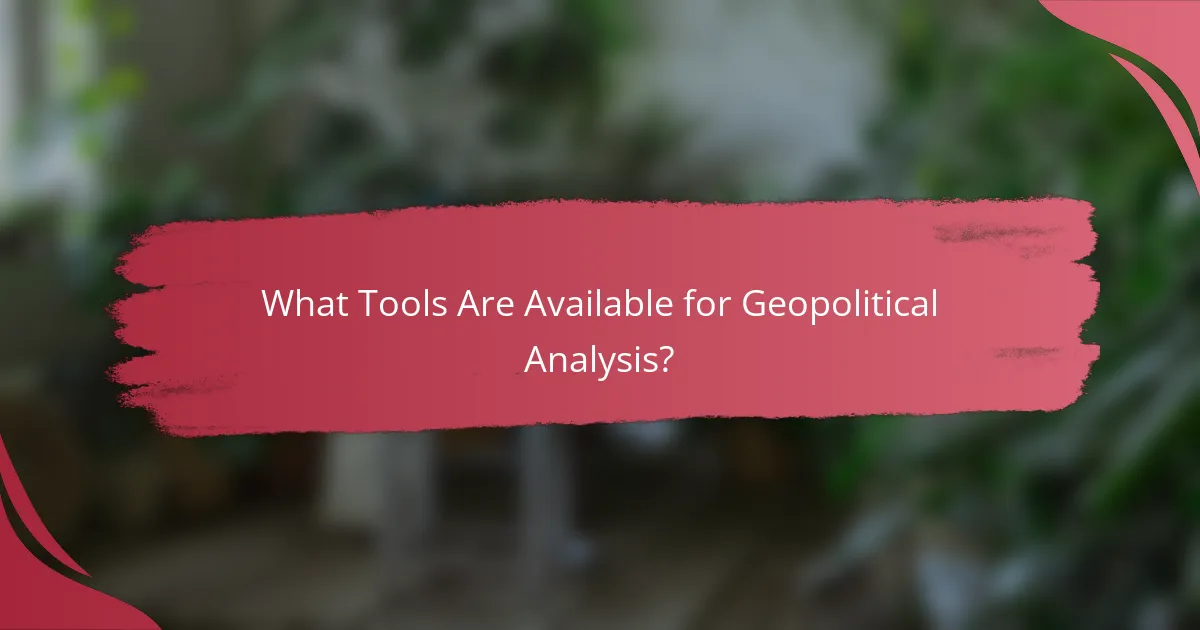
What Tools Are Available for Geopolitical Analysis?
Several tools are available for geopolitical analysis, each offering unique insights and methodologies. These tools help analysts assess risks, trends, and opportunities in various regions, facilitating informed decision-making.
GlobalData
GlobalData provides comprehensive data and analysis across multiple sectors, including geopolitical risks. Its platform aggregates information from various sources, allowing users to track political developments, economic indicators, and social trends.
When using GlobalData, consider its extensive database, which includes historical data and forecasts. This can help identify patterns and potential future scenarios. However, be mindful of the subscription costs, which can vary based on the depth of access required.
Stratfor
Stratfor, known for its geopolitical intelligence, offers analysis that focuses on global events and their implications. It employs a subscription model to provide insights that help organizations understand the strategic landscape.
Utilizing Stratfor’s services can enhance situational awareness, particularly for businesses operating in volatile regions. Keep in mind that while Stratfor’s analysis is robust, it may not cover every local nuance, so supplementing it with regional reports can be beneficial.
Gartner
Gartner specializes in technology-related insights but also provides valuable geopolitical analysis relevant to business strategy. Their research often includes assessments of how geopolitical factors influence market dynamics and technology adoption.
When leveraging Gartner’s insights, focus on their reports that connect geopolitical trends with technological impacts. This can guide strategic planning, but be aware that their emphasis is more on technology than on pure geopolitical analysis, so consider this when interpreting their findings.
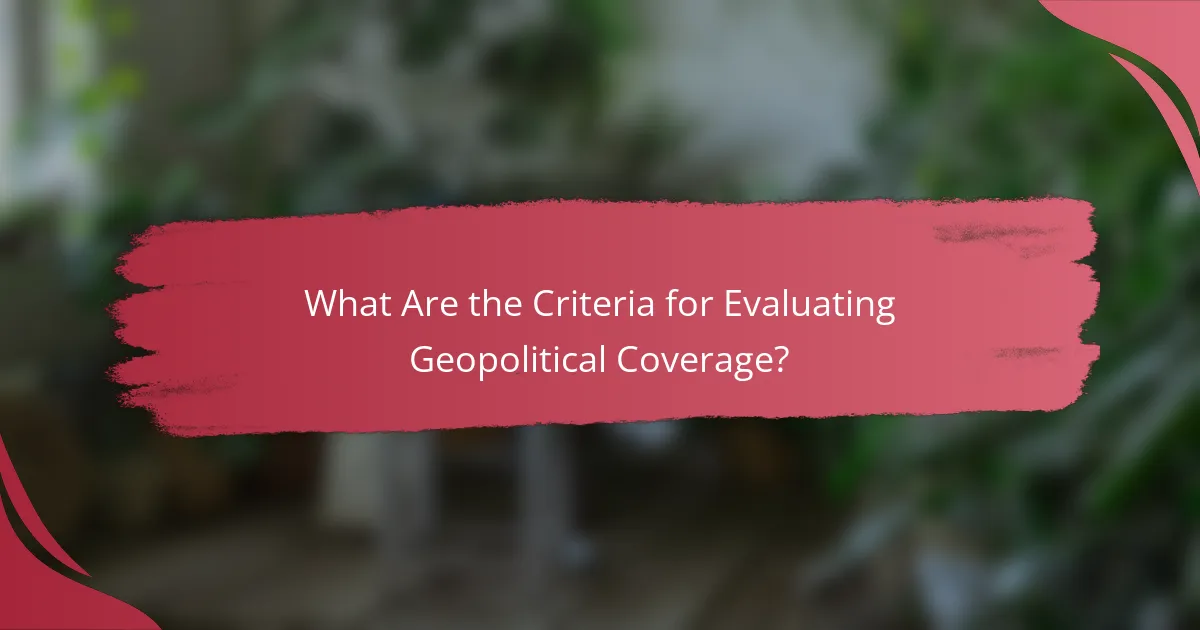
What Are the Criteria for Evaluating Geopolitical Coverage?
Evaluating geopolitical coverage involves assessing various criteria that determine the reliability and depth of information presented. Key factors include source credibility, bias, context, and the comprehensiveness of the analysis.
Source credibility
Source credibility is crucial for evaluating geopolitical coverage, as it reflects the trustworthiness of the information provider. Reliable sources often include established news organizations, academic institutions, and government reports, which typically adhere to rigorous standards of journalism and research.
When assessing a source’s credibility, consider its track record, expertise in the subject matter, and transparency regarding funding or affiliations. For instance, a report from a well-known think tank may carry more weight than an unverified blog post.
To ensure credible geopolitical coverage, cross-reference information from multiple reputable sources. This practice helps identify potential biases and provides a more balanced perspective on complex issues.
